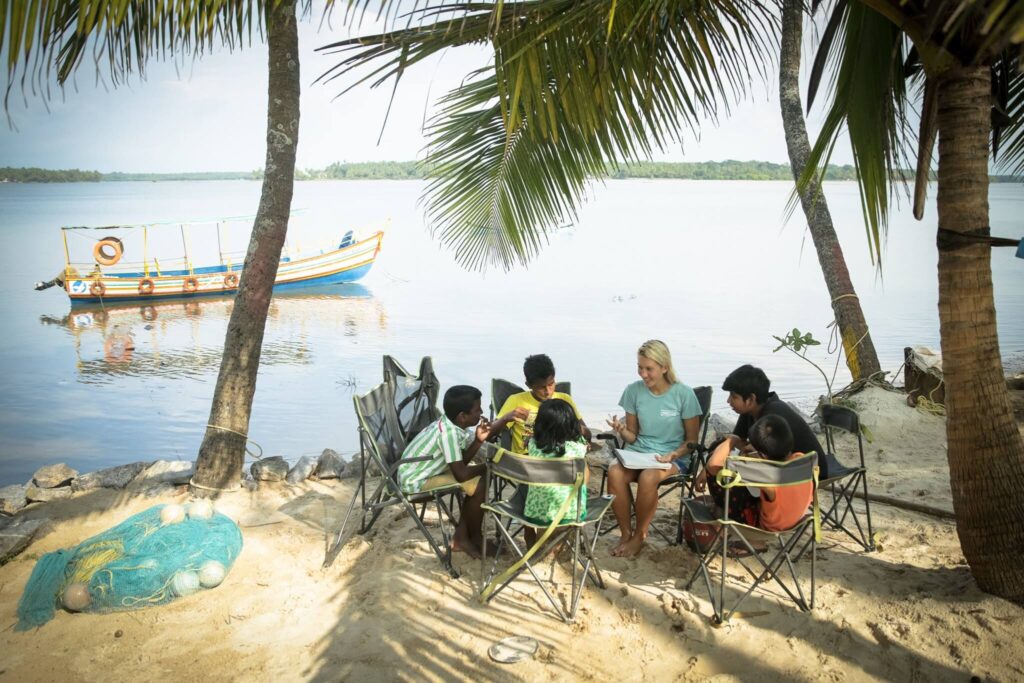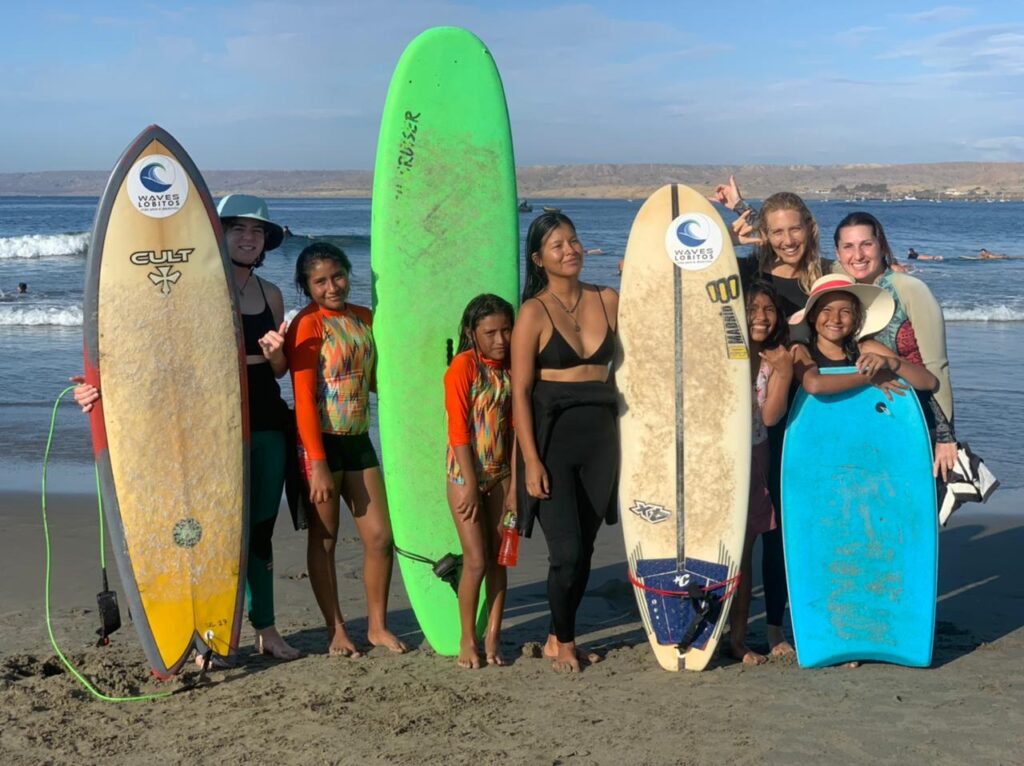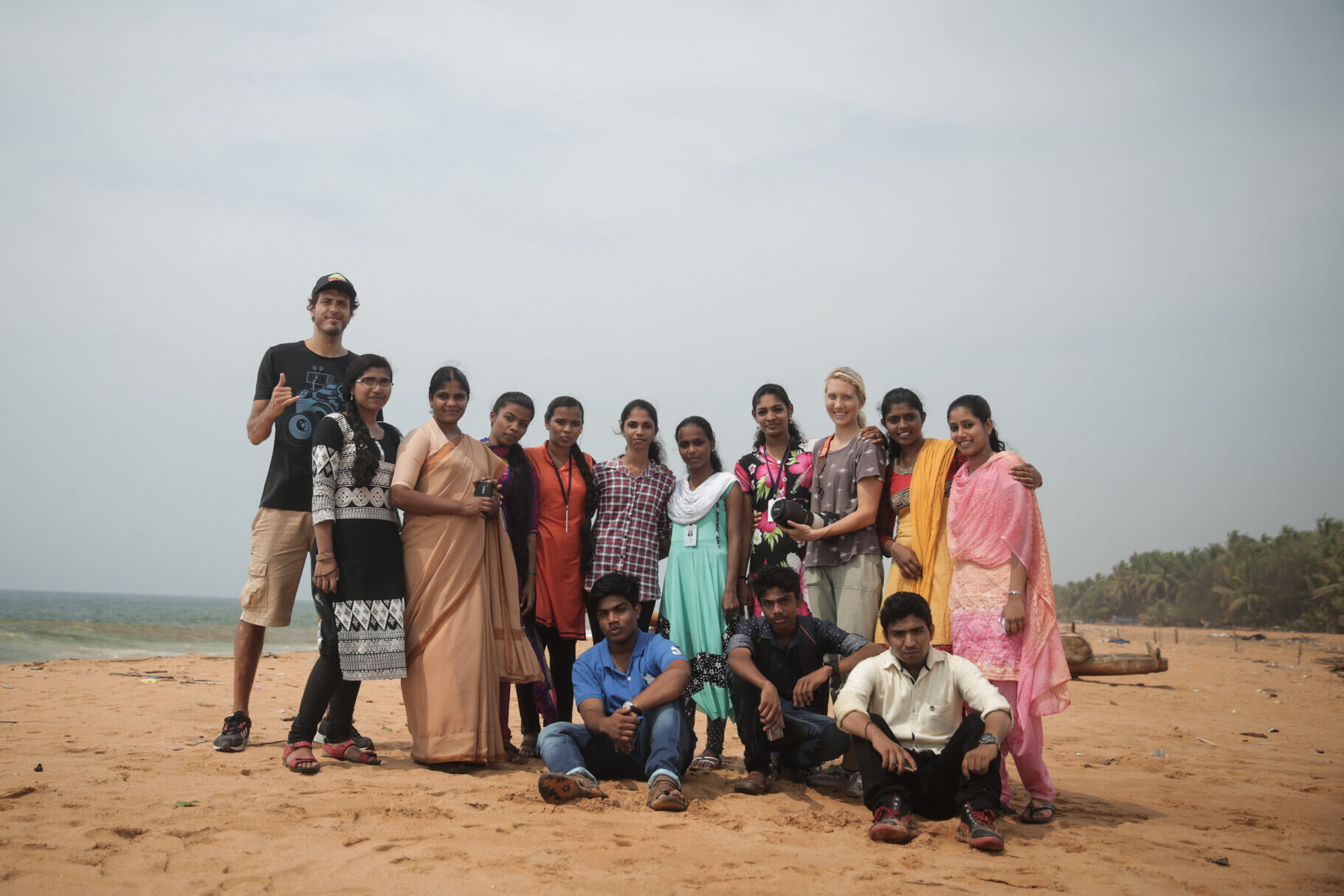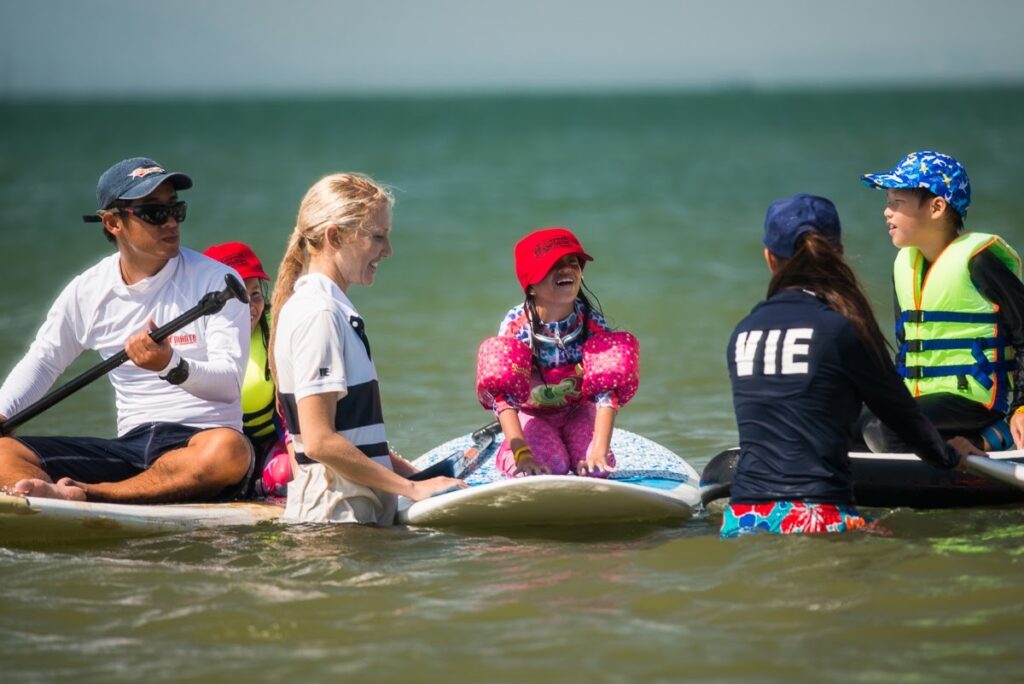Professional surfer becomes a powerful advocate for Blue Justice and sustainable oceans
Emi Koch
Engaging youth and educators in shaping resilient communities
2019 Fulbright-National Geographic Award to Vietnam


Since leaving her hometown of San Diego, California, Emi Koch’s passion for the oceans and the people whose well-being depends on them has taken her around the world. A Fulbright-National Geographic Award to Vietnam in 2019 marked a pivotal moment in her career path from professional surfer to sustainable oceans advocate as a social ecologist.
As the founder of Beyond the Surface International and co-founder of the Coast2Coast Movement, she has lived in a series of marginalized remote fishing villages in Southeast Asia, Africa, and Central and South America, where she facilitates workshops, programs, and festivals that weave together investigation and imagination, science and art, surfing and relationship-building, as well as other forms of “edutainment” for youth and their communities in order to carve pathways towards healthy seas, food security, and sustainable fish-dependent livelihoods.
Koch shares that her most rewarding journey so far was in June 2023, when she traveled to the United Nations Food and Agriculture Organization (FAO) in Rome, Italy, from the fishing village in Peru she currently calls home, to present a brand-new “Small-Scale Fisheries Guidelines Curriculum.” Developing this curriculum brought her full circle to her time in Vietnam, weaving together over a decade of hands-on work with young learners and educators.

As a Fulbrighter, she applied a community-based participatory approach called PhotoVoice, which invites community members to take pictures of a theme—like how the decline of fishing resources is impacting the social-ecological well-being of small-scale fishing communities—as active collaborators instead of research subjects. Having the support of Fulbright enabled her to team up with a UN FAO international research group working on the implementation of the “Small-Scale Fisheries Guidelines,” the first global human rights policy instrument for governments to empower and safeguard small-scale fisheries, which identifies wide-ranging topics, including gender roles, social development, and sustainable resource management.
Living in the village of Mui Ne, she worked with local educators, fishermen, and women across the value chain to facilitate focus groups with local learners that contributed valuable insights to the FAO’s publication, “Involving the People,” which was published in 2022. Motivated by the genuine engagement of the Mui Ne community, she proposed the development of a comprehensive curriculum through collaboration with educators and students from Peru, India, Nigeria, and Madagascar. This new tool would enable educators and learners in fishing villages worldwide to explore their unique strengths and specific challenges faced by their communities due to climate change and inspire them to devise sustainable solutions.

Overcoming learning challenges to return to the classroom
Creating this novel learning framework during the 2022 International Year of Artisanal Fisheries and Aquaculture to bring back to the FAO in 2023 also represented a profound personal victory in a struggle with learning challenges that she had faced since childhood. “If you had told me, growing up, that I would now be so centered on education, or even that I would work in classrooms all the time, I would have said ‘No way!’”
After years of undiagnosed ADHD and dyslexia, academics had become such an obstacle that she left her studies for a time to become a professional surfer, convinced that “school was just not for me.” During her time away from higher education, Koch learned about a program that used skateboarding to empower youth in Afghanistan. With the support of her surfing sponsor, Billabong, she explored building a network of grassroots community development projects that would introduce surfing to youth in remote coastal villages around the world.
Fueled by this new mission, Koch started her first nonprofit as a sophomore at Georgetown University, supporting community surfing projects from afar during the school year and volunteering in person during the summers with support from Billabong. After graduating, and after six years working on the ground with community partners in India, Colombia, Indonesia, Peru, and beyond, she returned to San Diego to earn a master’s in marine biodiversity and conservation from Scripps Institution of Oceanography. She applied for the Fulbright-National Geographic Award to continue her hands-on exploration of the resilience of fish-dependent communities—but she admits she never thought she would be selected.
Koch credits her Fulbright experience with increasing her self-confidence and providing her with the space to be able to explore her own path and build on the experiential knowledge she had gained along the way. After years of “feeling like I just wasn’t smart,” Fulbright provided her with a place to bring all of her knowledge and experience together and apply it. Fulbright was saying, we believe in you. “That was so healing in many ways,” she said.
For Koch, the wonderful thing about Fulbright is the way it takes down barriers and enables people to collaborate across borders, and, as she puts it, “learn what we need to learn, [and] shape the changes we want to see in the world.”
In 2024, Koch will return to Vietnam, to bring her new curriculum back to the kids who originally sparked the idea for it.
Read about Emi Koch’s Fulbright journey, “Exploring the Extraordinary in Your Ordinary”